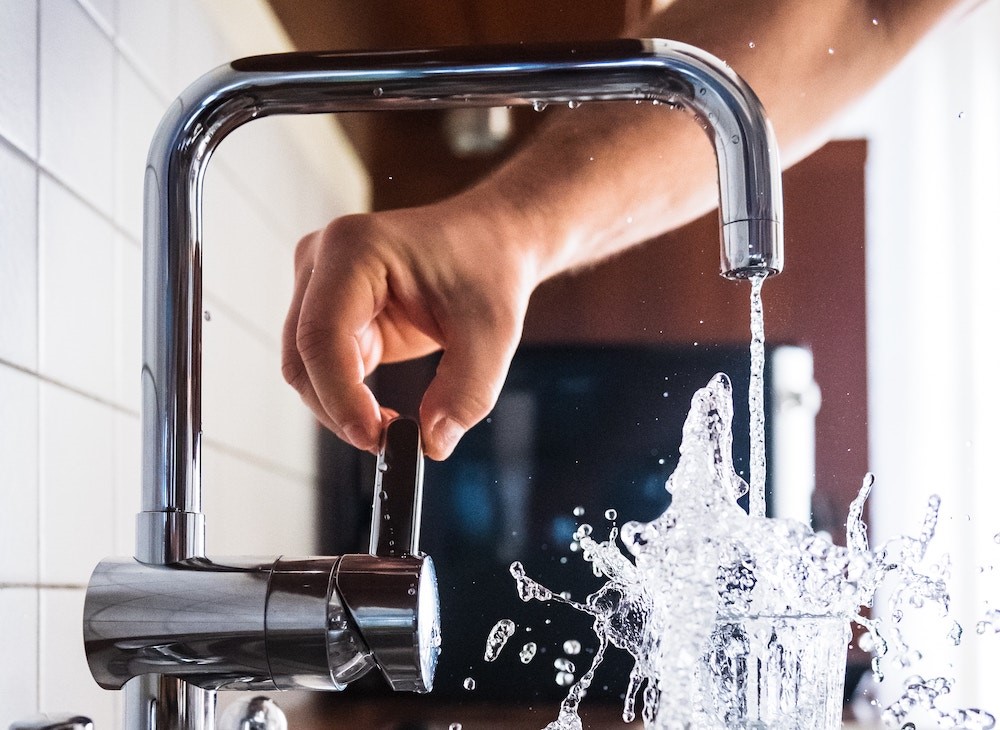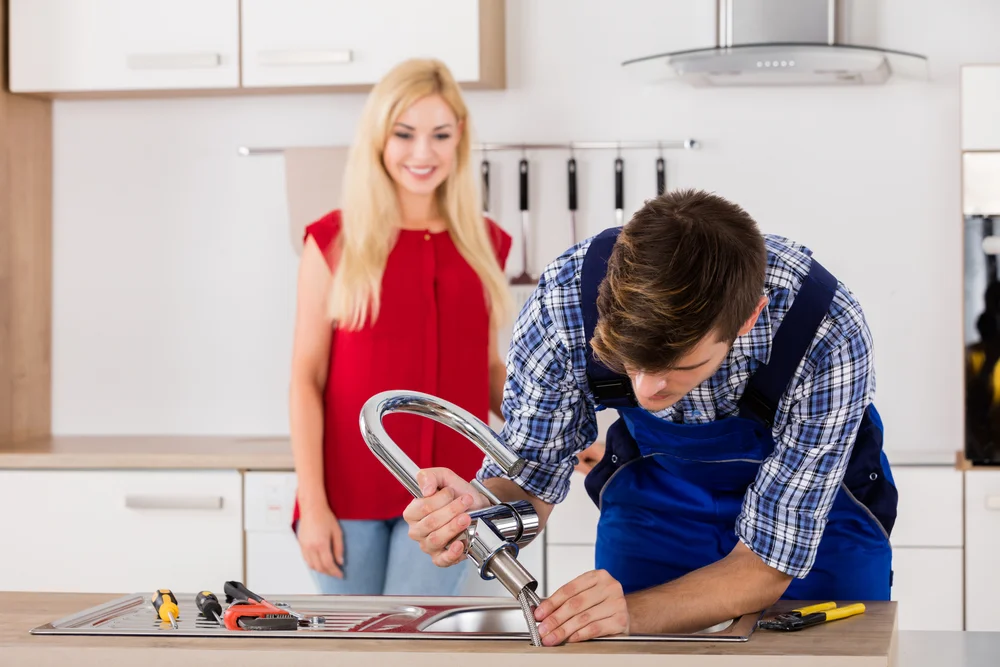Critical Plumbing Fixes: What to Do Until Help Arrives
Critical Plumbing Fixes: What to Do Until Help Arrives
Blog Article
The content which follows involving Expert Tips for Emergency Plumbing Repairs is relatively captivating. Don't miss it.

Plumbing emergencies can strike at any moment, triggering anxiety and possible damages to your home. Whether it's a ruptured pipeline, a clogged drainpipe, or a dripping tap, recognizing just how to take care of the scenario till a specialist plumbing professional gets here can conserve you from additional problems. This article gives necessary emergency plumbing pointers to assist you reduce damage and reclaim control throughout a plumbing crisis.
Shut off the Water
The very first step in any kind of pipes emergency is to shut off the water system. For localized concerns, such as a leaking tap or toilet, shut off the valve near the fixture. When it comes to a major leakage or burst pipeline, locate your home's primary water shut-off shutoff and turn it off quickly. Understanding the area of these valves ahead of time can save useful time throughout an emergency.
Turn off Your Water Heater
In particular emergencies, such as a burst pipeline, it's a good idea to shut down your water heater. This avoids overheating or damage to the system when water quits moving. Shut off the power supply to the hot water heater (electrical or gas) and allow it cool down to avoid prospective dangers.
Momentarily Quit a Ruptured Pipeline
A ruptured pipe can lead to significant water damage in minutes. To reduce the problem:
Call an expert plumbing technician right away to attend to the issue permanently.
Have an Emergency Plumbing Kit
Prepare a basic plumbing emergency package to take care of small problems successfully. Your kit should include:
Having these tools available can make a significant distinction in your capability to handle emergencies.
Unclog Drains Securely.
A stopped up drain can be an aggravating and unpleasant issue. Below's just how to tackle it:.
If these methods don't function, stay clear of making use of too much pressure, as it may get worse the obstruction.
Take Care Of Overflowing Toilets.
An overflowing commode can trigger prompt mayhem. Here's what you should do:.
Address Small Leakages with Short-term Fixes.
Tiny leaks can promptly end up being substantial issues if left uncontrolled. Utilize these short-lived repairs till expert aid shows up:.
While these repairs aren't permanent, they can assist decrease water loss and damage.
Manage Frozen Piping Thoroughly.
In cooler climates, frozen pipelines are a common emergency. If you believe a frozen pipe:.
Know When to Call an Expert.
While quick fixes can assist momentarily, certain pipes concerns call for immediate professional attention. Call a plumbing professional if:.
Promptly contacting a professional makes sure the concern is resolved appropriately and protects against more issues.
Stop Additional Damages.
Taking quick action to lessen damages can conserve you money and time in the future. Below's just how:.
Verdict.
Plumbing emergencies can be frustrating, however with the best understanding and devices, you can manage the scenario efficiently up until assistance arrives. By switching off the water system, dealing with small leakages, and utilizing temporary repairs, you can minimize damages and maintain your home safe. Remember, these pointers are momentary services; constantly get in touch with a certified plumber to take care of the source of the trouble. Preparation and quick reasoning are your finest allies in any pipes emergency.
8 Helpful Tips for Managing Plumbing Emergencies at Home
If your plumbing system hasn’t failed once, wait for it because almost everyone has a story to tell. Sometimes, it could be simple emergencies such as a leaking pipe, a blocked cistern, or even a big burst pipe. In situations like this, you need to have some handy tips to save you some money and from possible damages.
Take care of minor issues early.
Sometimes, you could have avoided an emergency by taking proactive measures while it was still early. Some major plumbing emergencies can be a result of an ignored minor issue. We recommend that you have items like plumbing tapes and other related items. A plumbing tape can allow you to manage minor leaks before the plumber arrives.
Cut off the water supply.
This tip is essential in almost any type of leakage problem. For problems like minor leakages in the toilet or kitchen, turn off the supply that takes water to the affected pipes. If the leakage is a major pipe, you must shut off the supply valve to the entire building. This will help you avoid flooding your home and neighbors if you share a flat.
Know your plumbing system
Folks typically move into a new apartment without understanding the water supply around the building. This can prove disastrous if a water emergency arises and the plumber is far away. The previous tip will prove useless if you don’t practice this one. More importantly, know where your water shut-off valve is located – you’ll need that knowledge to prevent potential home floods.
Have some common handy tools
There are lots of plumbing emergencies that you can handle without hiring a plumber. That’s why you must keep some tools available always. Some tools that you can use to fix simple plumbing emergencies easily include plumbing tapes, screwdrivers, thread seal tapes, plungers, pliers, tape measures, and rubber gloves.
Insulate your pipes from cold
You’ll save yourself from many plumbing expenses if you protect your water pipes from the cold. This is because of the harmful effects that cold weather can have on your pipes. During winter, your pipes can burst from being overly expected to freezing temperatures. So, make sure insulators are there to keep the pipes working correctly.
Avoid practices that will clog your toilet.
Many people indulge in practices that can damage the plumbing system of the entire building. One of these is when they use their toilet to dispose-off garbage. They flush all kinds of things, such as paper towels, bandages, hairs, female sanitary products, etc., down the toilet. This will block your toilet in the long run, incurring unnecessary expenditures. Dump such waste in the trash instead.
Check your dials regularly.
Sometimes, there could be leakages in your home without noticing them in time. So, constantly monitor your water meter dial. If the dial is reading when there is nobody using water, this is an indicator that there is leaking. Check for leaks immediately. Call a plumber as soon as possible if you can’t find any.
https://www.constructionplacements.com/8-helpful-tips-for-managing-plumbing-emergencies-at-home/

We were brought to that report about Expert Tips for Managing a Plumbing Emergency Until Help Arrives from a buddy on another domain. Liked our blog? Please quickly share it. Help others check it out. Thanks for being here. Please check our site back soon.
Set Up An Appointment Report this page